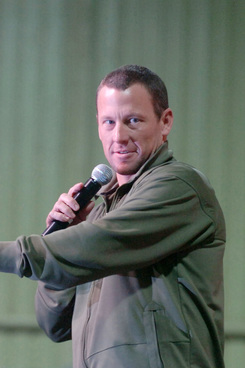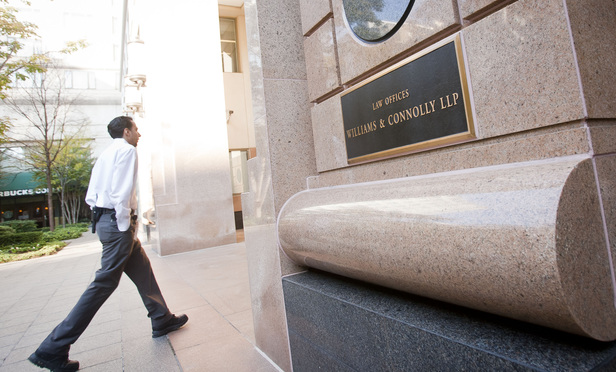
Armstrong (left) was a Williams & Connolly client for several matters between 2003 and 2013. Landis pressed to get information from the firm to help boost his claims that Armstrong, who’s admitted to using performance-enhancing drugs, bilked the U.S. Postal Service during its sponsorship of Armstrong’s professional cycling team. Landis is suing Armstrong under the False Claims Act.
Armstrong’s attorneys said the attorney-client privilege shielded the firm’s documents. An attorney for Landis, Paul Scott of Law Offices of Paul D. Scott in San Francisco, argued the privilege did not apply in situations where a lawyer helped further a crime or fraud. U.S. District Judge Christopher Cooper sided with Armstrong. (Cooper’s ruling is posted here.)
“Given the central importance of the attorney-client privilege to the proper functioning of the judicial system, and because Landis has failed to provide sufficient facts to meet his burden to overcome it, the court will deny his motion,” Cooper wrote.
Landis argued Williams & Connolly partner Mark Levinstein’s work for Armstrong in litigation over a Tour de France victory bonus is evidence of the firm’s participation in the cyclist’s alleged fraud. The firm countered that Levinstein was not Armstrong’s lead counsel and that his representation was tied only to the cross-examination of an anti-doping expert.
“Without more, the court cannot draw a ‘reasonable inference’ that this limited legal assistance helped further a crime or fraud,” Cooper wrote.
Cooper said in his ruling:
“Vigorously advocating on behalf of a client under investigation—even if that client later admits wrongdoing—is a core attorney function; much more is needed to constitute evidence that an attorney’s actions constituted or furthered a crime or fraud.”
Cooper also rejected Landis’ argument that communication between Williams & Connolly and Armstrong was not “legal advice” and thus not subject to the attorney-client privilege. Communication that’s linked to “litigation and legal strategies” can be protected, Cooper said.
“W&C’s communications with Armstrong and his agents regarding allegations and denials of doping logically fall into this category, given their relevance to the variety of legal proceedings to which he was a party at the time,” the judge wrote.
Armstrong’s lawyers at Keker & Van Nest and Paul Hastings last month called Landis’ demand for documents “a thinly veiled attempt to eviscerate the attorney-client privilege.”
The U.S. Department of Justice in February 2013 joined Landis’ suit against Armstrong. The government did not oppose Landis’ effort to get documents from Williams & Connolly.






